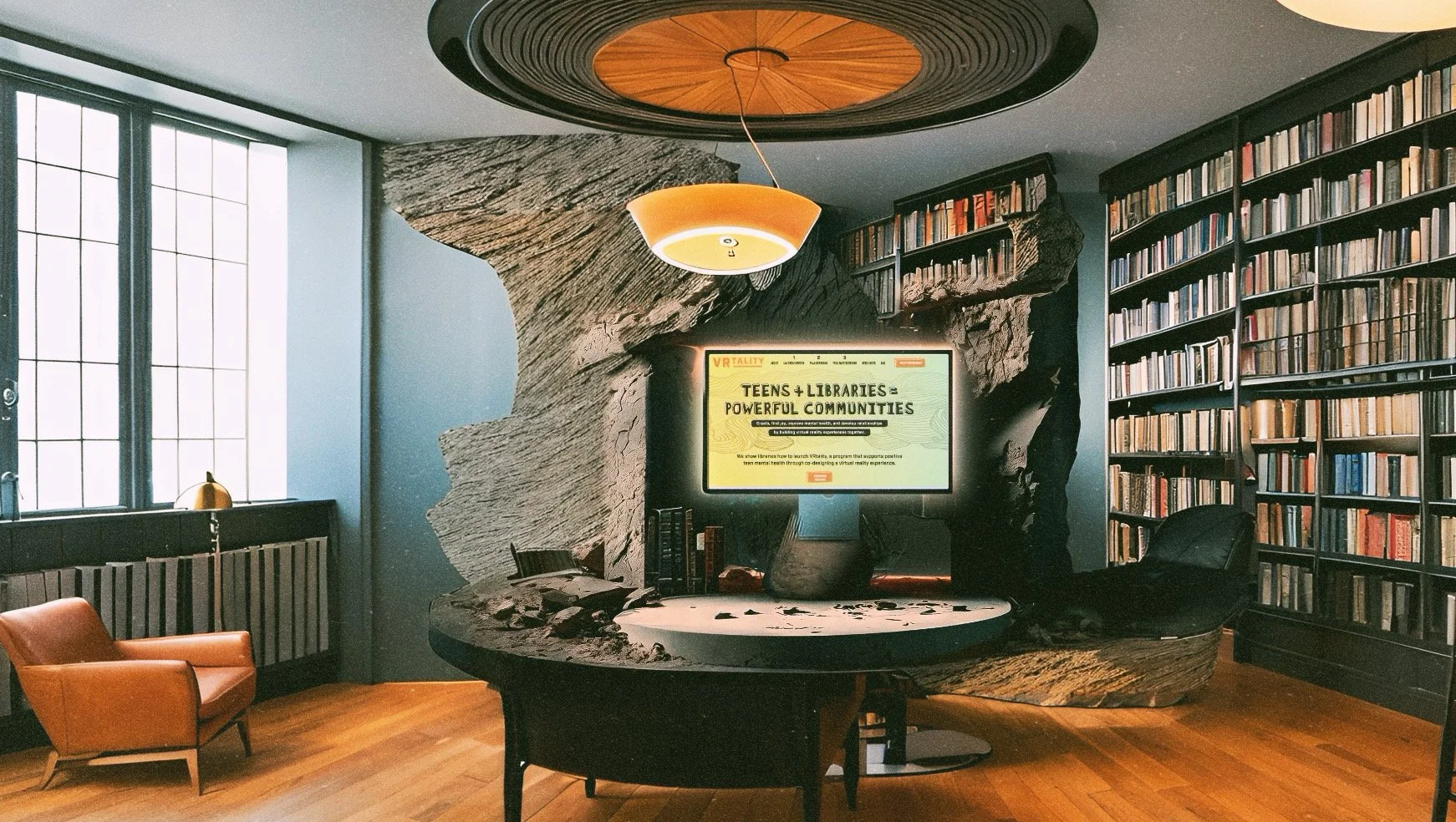
UW & SPL | VRtality

Seattle Public Library | VRtality
UW, HCDE 517 usability studies, winter 2022
UX Research / Usability Testing / Interviews / Heuristic Evaluationreport | deck
Brief
Our team conducted a usability study to improve the Seattle Public Library’s VRtality program blueprint website. Developed with a grant from the Institute of Museum and Library Services, the VRtality program engages teens in mental health conversations through the co-design of a VR application, promoting mental health awareness and destigmatization and emotional regulation. The study's primary goal was to assess the website's usability and recommend enhancements to ensure that librarians could effectively access and utilize the site to consider implementing the VRtality program in their library systems.
Process
Methodology: The study involved semi-structured interviews, moderated usability testing, heuristic evaluation, and a card sort activity, focusing on understanding librarian and library manager interactions with the VRtality website. The participants, consisting of nine teen-focused librarians across different libraries, were assessed on their ability to navigate the website, understand the VRtality program, and gauge the feasibility of implementing the program in their libraries.
Interviews explored librarians' past program implementation experiences and expectations.
Usability Testing observed real-time navigation and task completion on the website, highlighting areas of confusion or success.
Heuristic Evaluation identified usability issues against established design principles.
Card Sort Activity aimed to understand users' preferred organization of website information for better navigation.
Challenges and Insights: The study revealed that while the website was visually appealing and informative, it lacked sufficient program context in initial stages, making it difficult for librarians to envision implementing the program. The process highlighted the need for a clearer, more accessible presentation of program details and actionable steps for implementation.
Outcome
Findings and Recommendations: Our team identified critical areas for improvement, including providing more program context upfront, reorganizing content for intuitive navigation, and creating resources tailored to different stages of program consideration and planning. Recommendations included:
Adding a concise program overview and success stories on the homepage.
Simplifying the "Build Your Roadmap" tool with clear instructions and expectations.
Offering a downloadable one-page summary of the program for easy sharing among stakeholders.
Impact: The study's findings aim to enhance the VRtality website's usability, making it easier for librarians to access vital information, assess the program's feasibility, and ultimately facilitate the adoption of the VRtality program in more libraries. This could lead to broader engagement of teens in mental health discussions and the innovative use of VR technology for mental health education.
